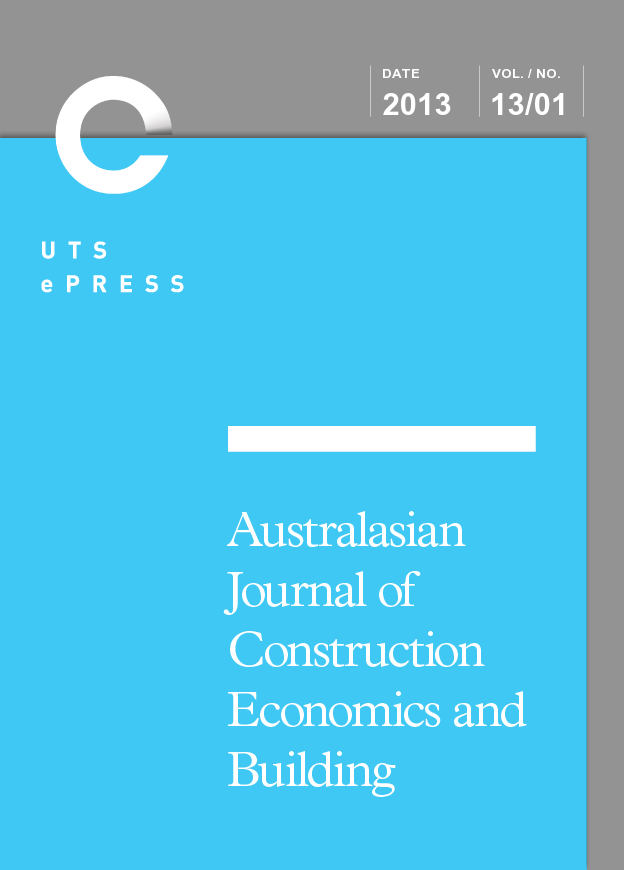Textual complexity of standard conditions used in the construction industry
Main Article Content
Abstract
Clearly written communication aids the understanding of construction contracts, resulting in less disputation. Past research, using opinion surveys rather than objective criteria, shows that construction contracts lack clarity and standard forms have become complex over time. The study outlined in this paper uses three objective measures of clarity developed by linguists to establish the readability of construction contracts. In addition, thirty industry professionals participated in a Cloze Test which measured the level of comprehension of clauses concerning disputes. The study verifies that contract conditions are very difficult to read, with college level reading skills needed to comprehend half of the clauses. However, the hypothesis that standard forms have become complex over time was not supported by the study. The study establishes a linear relationship between readability and comprehension, proving the hypothesis that improved readability increases the comprehension of a contract clause.
Article Details
Section
Authors who publish with this journal agree to the following terms:
a) Authors retain copyright and grant the journal right of first publication with the work simultaneously licensed under a Creative Commons Attribution License that allows others to share and adapt the work with an acknowledgement of the work's authorship and initial publication in this journal.
b) Authors are able to enter into separate, additional contractual arrangements for the non-exclusive distribution of the journal's published version of the work (e.g., post it to an institutional repository or publish it in a book), with an acknowledgement of its initial publication in this journal.
c) Authors are permitted and encouraged to post their work online (e.g., in institutional repositories or on their website) prior to and during the submission process, as it can lead to productive exchanges, as well as earlier and greater citation of published work (See The Open Access Citation Advantage Service). Where authors include such a work in an institutional repository or on their website (ie. a copy of a work which has been published in a UTS ePRESS journal, or a pre-print or post-print version of that work), we request that they include a statement that acknowledges the UTS ePRESS publication including the name of the journal, the volume number and a web-link to the journal item.
d) Authors should be aware that the Creative Commons Attribution (CC-BY) License permits readers to share (copy and redistribute the work in any medium or format) and adapt (remix, transform, and build upon the work) for any purpose, even commercially, provided they also give appropriate credit to the work, provide a link to the license, and indicate if changes were made. They may do these things in any reasonable manner, but not in any way that suggests you or your publisher endorses their use.
